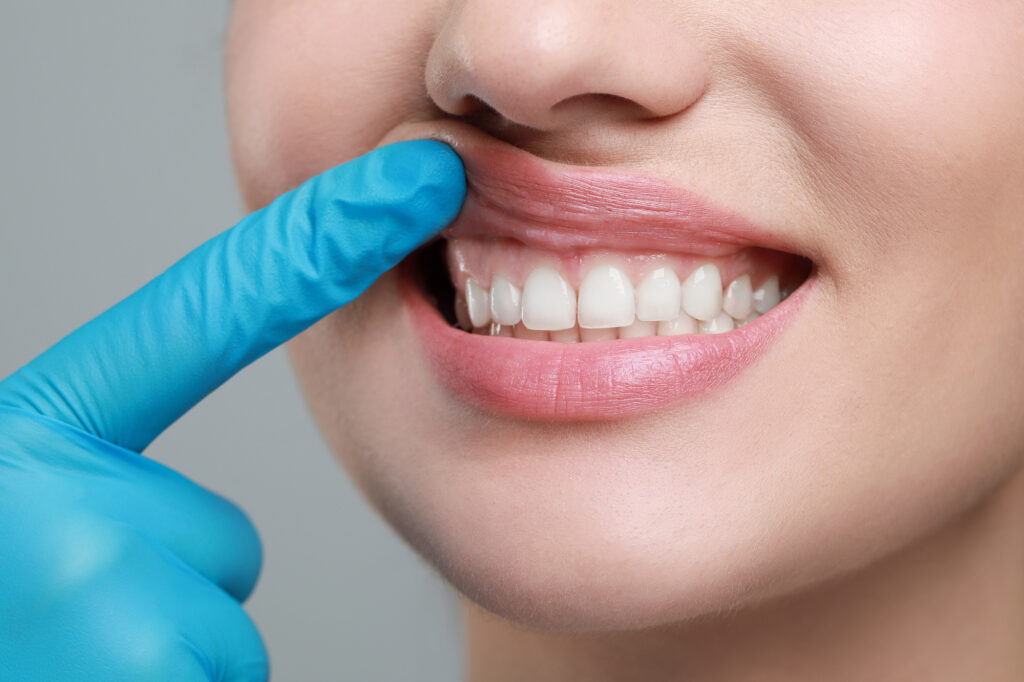
When you think about orthodontics, you picture straighter teeth, a more confident smile, and an improved facial aesthetic. But there’s more to orthodontic treatment than meets the eye. Did you know that orthodontic care is a powerful tool in preventing gum disease? This is a connection that often goes unnoticed. But, orthodontics can be a serious ally for long-term oral health.
Understanding Gum Disease
Gum disease (aka periodontal disease) is a surprisingly common oral health condition that involves the gums and supporting structures of your teeth. It starts as gingivitis with mild symptoms such as redness, swelling, and bleeding gums during brushing or flossing. When left untreated, gingivitis often progresses into a more severe form called periodontitis.
Periodontitis is characterized by the formation of spaces, or pockets, between your teeth and gums, where plaque and harmful bacteria thrive. As these pockets deepen, inflammation intensifies, leading to gum recession and potential bone loss. In advanced stages, untreated gum disease can cause tooth mobility and even loss. While early gum disease is reversible, severe periodontitis and the damage caused by it is not.
The Connection Between Misalignment and Gum Disease
Misaligned teeth and abnormal bites can raise your risk of gum disease. There are several mechanisms that contribute to this correlation.
Difficult Oral Hygiene
Teeth that are crooked or overcrowded create tight spaces and overlaps that are hard to clean effectively. These spaces become breeding grounds for bacteria, significantly increasing the likelihood of gum disease. Proper oral hygiene becomes challenging as toothbrushes and floss struggle to reach these inaccessible spots.
Gum Irritation
Misaligned teeth can exert excessive pressure on your gums, causing chronic irritation. This constant irritation may lead to gum recession, further exposing tooth roots and making the gums vulnerable to disease-causing bacteria.
Uneven Bite Force
In addition, your teeth might experience uneven forces during chewing and biting. Certain areas of your mouth may bear more stress than others, resulting in uneven distribution of pressure on your gums and underlying bone. Over time, this imbalance can contribute to gum issues and potential disease development.
Bite Problems
An abnormal bite, like an overbite or underbite, can also create a conducive environment for gum disease. These bite issues may cause improper contact between your teeth, leading to gum problems.
Orthodontics and Gum Disease
Orthodontic treatments can play a significant role in preventing long-term gum disease by addressing the root causes of misalignment and bite issues.
Easier Oral Hygiene
Orthodontic treatment, whether with traditional braces, clear aligners, or other options, aims to correct misaligned teeth. When your teeth are well aligned, it becomes much easier to maintain thorough oral hygiene.
Reduction in Gum Irritation
As orthodontic treatment repositions your teeth, it alleviates the chronic irritation experienced by gums due to misalignment. This reduction in irritation can help prevent gum recession and maintain the health of your gum tissues.
Improved Gum Attachment
Properly aligned teeth ensure that the forces generated during biting and chewing are evenly distributed across your gums and bone. This balanced distribution reduces the risk of localized gum problems, fostering a healthier oral environment.
Enhanced Bite Function
Orthodontic treatment corrects bite problems, which can lead to more uniform pressure on your gums. By improving your bite function, orthodontics minimizes the stress on your gum tissues and lessens the risk of gum issues.
Take Action for Your Future Gum Health
Orthodontics does more than just improve the way your smile looks. It can be key in maintaining healthy teeth and gums for life. Book a consultation with our office today to see how orthodontics can improve your oral health for the long run.





